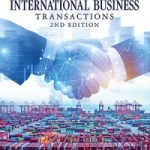By Kelsey McGillis
Law Student Editor
In July 2024, the European Union (EU) and Euratom formally announced their intention to withdraw from the Energy Charter Treaty (ECT), effective in one year. This decision follows a modernization effort to align the treaty with climate goals, yet many EU member states remain dissatisfied with the revisions. Initially, discussions among member states focused on an uncoordinated withdrawal, allowing some countries to remain in the treaty. However, the European Commission now advocates for a unified exit by the EU, Euratom, and all member states to prevent internal investor disputes and to ensure legal clarity.
Established in 1994 at the end of the Cold War, the ECT aimed to promote international cooperation in the energy sector by fostering open markets, protecting foreign energy investments, and resolving disputes between investors and host countries. The modernization process introduced significant changes, including the exclusion of fossil fuel investments and the introduction of intra-EU arbitration. However, EU countries are concerned that the updated treaty does not adequately address their environmental policies, as investment claims against such policies have created tensions. Notable cases, such as Sweden’s Vattenfall challenging Germany’s nuclear phase-out, highlight the challenge of balancing investment protections with state sovereignty to regulate environmental issues.
The EU’s decision to withdraw is rooted in the belief that the ECT conflicts with its climate objectives under the European Green Deal and the Paris Agreement. The ECT has been criticized for allowing fossil fuel companies to use its dispute mechanisms to challenge climate regulations, undermining the EU’s environmental efforts.
In May 2024, the EU officially began its withdrawal process, marking a significant step toward resolving this tension. This decision emerged from a political compromise known as the “Belgian roadmap,” enabling the EU and Euratom to exit the ECT while some member states continue to support its modernization. Several EU countries, including Ireland and Portugal, have expressed their intention to withdraw, demonstrating broad support for a unified approach. A coordinated exit would avoid legal uncertainties and provide a clearer path for advancing EU climate policies.
One major concern regarding withdrawal from the ECT is its “sunset clause,” which extends protections for foreign investments for 20 years after a member state’s exit. The EU is advocating for a coordinated withdrawal among member states to mitigate risks associated with this clause. Without coordination, remaining member states could face legal complications, including investor disputes within the EU, which could weaken a unified climate policy.
While the legal outcome of this coordinated exit remains uncertain, energy investors within the EU are advised to adopt alternative legal strategies to protect their interests. This may involve restructuring investments or negotiating direct agreements with individual member states to avoid potential regulatory challenges or litigation.
